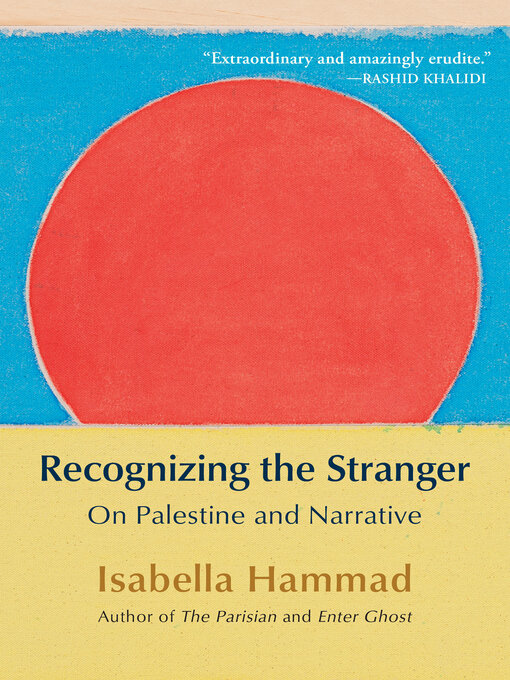"Extraordinary and amazingly erudite. Hammad shows how art and especially literature can be much, much more revealing than political writing." —Rashid Khalidi, New York Times bestselling author of The Hundred Years' War on Palestine
From the award-winning author of The Parisian and Enter Ghost comes an outstanding essay on the Palestinian struggle and the power of narrative
Nine days before October 7, 2023, award-winning author Isabella Hammad delivered the Edward W. Said Memorial Lecture at Columbia University. The text of Hammad's seminal speech and her afterword, written in the early weeks of 2024, together make up a searing appraisal of the war on Palestine during what seems a turning point in the narrative of human history. Profound and moving, Hammad writes from within the moment, shedding light on the Palestinian struggle for freedom. Recognizing the Stranger is a brilliant melding of literary and cultural analysis by one of Granta's Best of Young British Novelists and a foremost writer of fiction in the world today.

